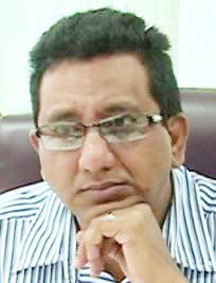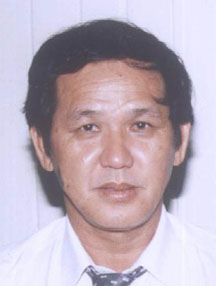The Donald Ramotar-led administration has appealed the decision by acting Chief Justice Ian Chang to throw out its challenge of the numerical make-up of the National Assembly’s Committee of Selection and other key committees.
In a notice of appeal filed on Thursday, Attorney General Anil Nandlall asked that Chang’s May 2nd decision be set aside as it was erroneous in law.
He charged that in so far as Justice Chang addressed the power of the National Assembly to regulate its own procedure, “he failed to give due weight and effect to the subjection of this power to the provisions of the Constitution which included the basis of representation therein.”

Ruling on Nandlall’s Constitutional Motion, which argued that the composition of the Committee of Selection and other committees ought to be reflective of the votes won by the parties at the last general elections, Chang had found that the court had no jurisdiction in the matter since there was no evidence of a constitutional breach. He also found that the constitution does not mandate that the Committee of Selection and other parliamentary standing committees must reflect the proportion of seats held by the parties in the National Assembly and concluded that Nandlall’s constitutional motion had been “legally misconceived.”
But in the appeal, which names Opposition Leader David Granger and Speaker of the National Assembly Raphael Trotman as the respondents, Nandlall is contending that Justice Chang “erred in law” when he treated the proportional representation in the National Assembly as an internal matter from which it could depart in its establishment of committees.
Further, he is arguing that the judge also erred when he did not consider the principle of proportionality prescribed for national elections, under Articles 60 and 160 of the Constitution and in the Election Laws (Amendment) Act No 15 of 2000, applicable to, the Committee of Selection, described as the “pivotal committee,” and other such committees. Nandlall also stated that Justice Chang erred in law in so far as he considered that the Standing Orders of the National Assembly were not “subject to our Constitution and he totally overlooked and did not deal with the submissions made to him that the Standing Orders were recognized by our law” and had to be considered in the context of the provisions of the Constitution, including proportionality.

As a result, Nandlall is seeking the relief of the court to set aside and reverse the decision and enter judgment for the declarations that he sought in his motion.
Nandlall’s motion, filed in March, proposed that in keeping with the principle of proportionality, five seats on the committees should go to the PPP/C, with four to APNU and one to the AFC, as opposed to the current make-up, which sees APNU and the AFC with four seats and one seat, respectively, while the PPP/C has four seats.
Nandlall asked the court for orders setting aside, revoking, cancelling or annulling the composition of the Committee of Selection, on the grounds that it was in breach of the Constitution and a breach of the provisions of the law. Granger and Trotman were named as the respondents in that case.
The Committee of Selection decides the composition of the other parliamentary committees. APNU and AFC defeated the government on a vote to determine its numerical make up, to reflect their one-seat majority in the House, having garnered 33 seats compared to the 32 seats won by the PPP in the last election.
The government and opposition have since been divided over the numerical composition of the other committees. The matter was discussed at tripartite talks between the three parties in parliament but no consensus was arrived at. Nandlall’s court motion was then filed.
Both APNU and AFC have strongly criticized the administration for resorting to the court over recent decisions made by the opposition majority in the National Assembly, saying it is an abuse of the legal process and an attempt to undermine the doctrine of separation of powers.




